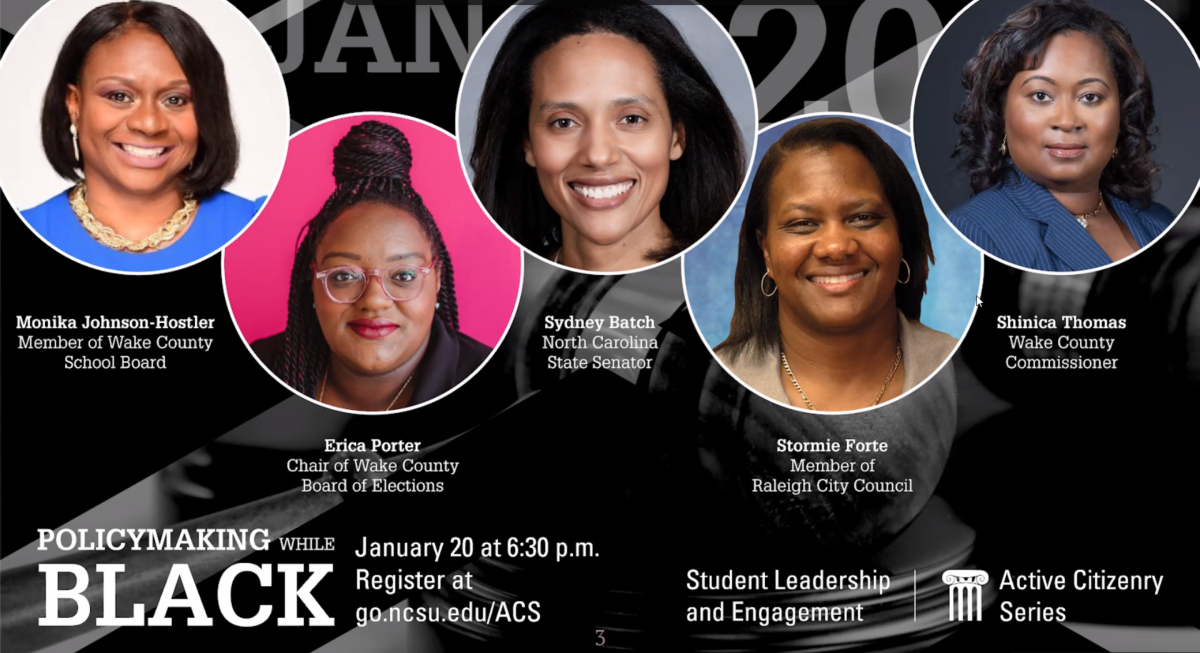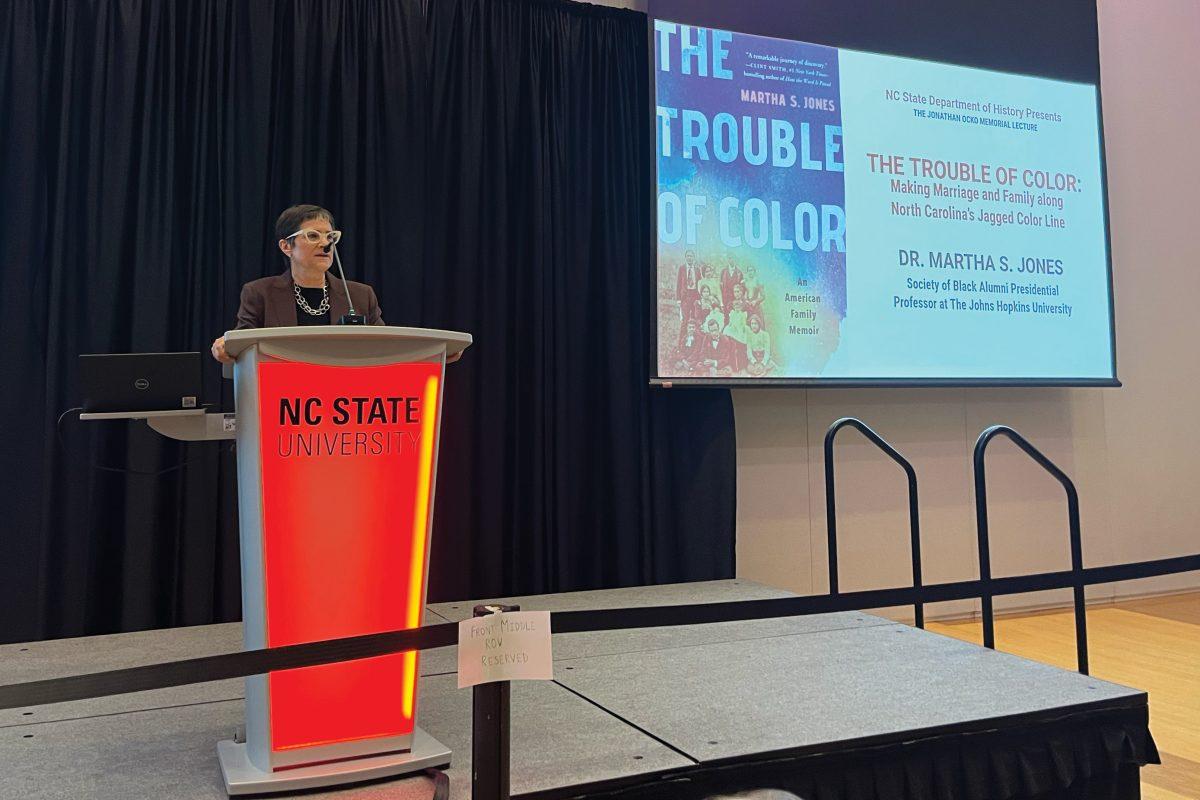As a part of its MLK Active Citizenry Series, Student Leadership and Engagement held a panel discussion on Jan. 20 called Policymaking While Black. The event featured five panelists who discussed their experiences as Black women policymakers and elected officials at the local and state level.
Wanya Ward, a master’s student in higher education administration and a graduate service assistant at Student Leadership and Engagement, moderated the panel discussion.
“For the [MLK] Active Citizenry Series we wanted to give participants the opportunity to learn about both basic and complex governmental systems and give them insight on how they can become a part of our ever evolving political world,” Wanya said.
Among the panelists was Erica Porter, chair of the Wake County Board of Elections; Monika Johnson-Hostler, member of the Wake County School Board; Sydney Batch, North Carolina senator of District 17; Stormie Forte, member of Raleigh City Council representing District D; and Shinica Thomas, Wake County Commissioner of District 6.
One theme of discussion was the many firsts among the women. Porter is the first Black woman to hold the position of chair on Wake County Board of Elections, Batch is the first Black person to serve in her Senate district and Forte is the first Black woman to serve on the city council.
“We are in 2022, and we are all talking about our firsts,” Batch said. “We are all Black women who are very accomplished, and we are still in a position where we are saying we are just making strides.”
The discussion then moved to the panelists discussing going the extra mile to prove themselves and represent their constituents. Johnson-Hostler used an example of an incident that occurred shortly after her election.
“I represent two small municipalities in Wake County, and I went to the first municipalities’ board meeting after I was elected,” Johnson-Hostler said. “From their seat, a white man says into his mic, ‘How did we get you? We’ve never voted for anybody Black in our district,’ in the mic. And I just grinned and beared it. There was nothing I could say. In that moment I knew that I was going to stay in this seat until I was ready to move to make change, because at that point it became not just about what I represented as a Black woman from a small rural community from a single-parent. In that moment, I knew I would have to be all of those things plus more to prove what I know to be true about my ability to do the job, but more important for me to represent all constituents whether they voted for me or not.”
The panelists also talked about how many people are unable to take policymaking jobs due to low pay and, in some cases, long hours. Porter said her job as chair of the board of elections is a part-time position that feels like a full-time position.
“This should not be a full-time job, but it has really become full time,” Porter said. “We only get a stipend monthly for what I do. I don’t know if you saw what happened in 2020, but we were pulling 12 to 14 hour days looking at ballots, and you can’t work another job when you’re doing something like that.”
Batch is also an attorney. She said a reason she ran for office was because she realized through working with her clients that many people cannot afford to hold office.
“It pays you $15,000 a year, so what that means is those who are closest to the pain are not closest to the power because they cannot have the luxury of working a part-time job where they only make $15,000 a year,” Batch said. “And so, when I see my clients every single year, struggling day in and day out to put food on their kids’ tables and roofs over their heads, I decided that I could be an advocate.”
Forte said the advantage of being a Black woman in a policymaking position is being able to push diversity from a position of influence.
“Being a Black female gives you the opportunity to have perspective and lend your voice in spaces that our community is not always represented,” Forte said. “For example, in the city of Raleigh, I’m the first Black woman to serve on the city council, we now have the first Black female serving as our city manager. We have the second Black female as our police chief, we have a white female serving as our city attorney. All of these are positions that have typically been dominated by white males, so having someone who’s got a voice at the table to say, ‘Hey, we need more diversity in our leadership roles within the city. The city needs to be more representative of the population,’ that’s one of the advantages of being able to be a Black female in these spaces.”
The panelists said those who are interested in getting involved in policy making should follow their passions and what they care about to find their place.
“Let your passions drive you, especially at this point in your life, you will figure out the path that you want and still have a long life ahead of you, so be driven by what you care about,” Johnson-Hostler said.












